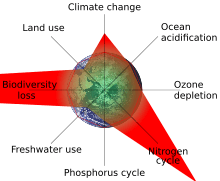| Top Level Issue |
Issues |
Relevant UN Directives/Initiatives |
|---|
| Africa | poverty, diseases, desertification, malnutrition, regional conflict | Office of the Special Adviser on Africa, African Union, New Partnership for Africa’s Development, United Nations–African Union Mission in Darfur |
| Ageing | ageing population, demographic transition | Vienna International Plan of Action on Ageing, United Nations Principles for Older Persons, Proclamation on Ageing, International Year of Older Persons |
| Agriculture | sustainable agriculture, food security | Food and Agricultural Organization (FAO) |
| AIDS | Prevention of HIV/AIDS, HIV and pregnancy, HIV/AIDS denialism | Joint United Nations Programme on HIV/AIDS, The Global Fund to Fight AIDS, Tuberculosis and Malaria |
| Atomic Energy | nuclear weapons, nuclear waste | International Atomic Energy Agency, Treaty on the Non-Proliferation of Nuclear Weapons, Comprehensive Nuclear-Test-Ban Treaty |
| Children | Child poverty, Child labour, Child abuse, Child mortality, Global education | Education First, United Nations Children’s Fund (UNICEF), World Food Programme, Global Education First Initiative[4] |
| Climate Change | Climate change mitigation, Climate change denial, Adaptation to global warming | United Nations Framework Convention on Climate Change |
| Decolonization | exploitation | United Nations Special Committee on Decolonization, United Nations Trust Territories, International Decade for the Eradication of Colonialism |
| Demining | land mines | Mine Action Coordination Center, Ottawa Treaty |
| Democracy | democratization | Universal Declaration of Human Rights, International Covenant on Civil and Political Rights, UNDP, UNDEF, DPKO, DPA, OHCHR, UN Women |
| Development | social transformation, economic development | Social protection floor |
| Disarmament | weapons of mass destruction, chemical and biological weapons, conventional weapons, landmines and small arms | United Nations Office for Disarmament Affairs |
| Environment | pollution, deforestation, desertification,etc., see Environment below | United Nations Conference on the Human Environment, World Environment Day, United Nations Environment Programme (UNEP), Framework Convention on Climate Change, Montreal Protocol, Convention to Combat Desertification, Convention on Biological Diversity |
| Family | socialisation of children, s.a. Ageing, Children | UNFPA, UNICEF, International Year of the Family |
| Food | missing food security and safety, food riots, world hunger | FAO |
| Governance | lack of equity, participation, pluralism, transparency, accountability, rule of law | |
| Health | maternal health, extreme poverty | Millennium Development Goals |
| Human Rights | human rights violations | Universal Declaration of Human Rights |
| Human Settlements | slums, urbanization, sanitation | UN-HABITAT, Millennium Development Goal |
| Humanitarian Assistance (s.a. Refugees) | humanitarian crisis, human migration, displacement | World Food Programme, Office for the Coordination of Humanitarian Affairs, International Organization for Migration |
| International Law | war crimes, discrimination, state-corporate crime | International Law Commission, Convention on the Prevention and Punishment of the Crime of Genocide (1948), International Convention on the Elimination of All Forms of Racial Discrimination (1965), International Covenant on Civil and Political Rights (1966), International Covenant on Economic, Social and Cultural Rights (1966), Convention on the Elimination of All Forms of Discrimination against Women (1979), United Nations Convention on the Law of the Sea (1982), Convention on the Rights of the Child (1989), Comprehensive Nuclear-Test-Ban Treaty (1996), International Convention for the Suppression of the Financing of Terrorism (1999), Convention on the Rights of Persons with Disabilities (2006) |
| Oceans / Law of the Sea (s.a. Water) | marine pollution, ocean governance | United Nations Conference on the Human Environment, Convention on the Prevention of Marine Pollution by Dumping of Wastes and Other Matter |
| Peace and Security | | United Nations peacekeeping, List of United Nations peacekeeping missions, Peacebuilding Commission |
| Persons with Disabilities | discrimination, lack of universal design | Convention on the Rights of Persons with Disabilities |
| Population | overpopulation, world population | UNFPA |
| Refugees (s.a. Humanitarian Assistance) | | United Nations Relief and Rehabilitation Administration (UNRRA),
United Nations High Commissioner for Refugees (UNHCR) |
| Terrorism | | Comprehensive Convention on International Terrorism |
| Volunteerism | | United Nations Volunteers |
| Water (s.a. Oceans) | water scarcity, water conflict, water privatization, water pollution | UN-Water, System of Environmental and Economic Accounting for Water, Water for Life Decade, International Recommendations on Water Statistics, United Nations Water Conference, Millennium Development Goals, International Conference on Water and the Environment (1992), Earth Summit (1992) |
| Women | women's rights, gender equality | Commission on the Status of Women, International Women's Year |
